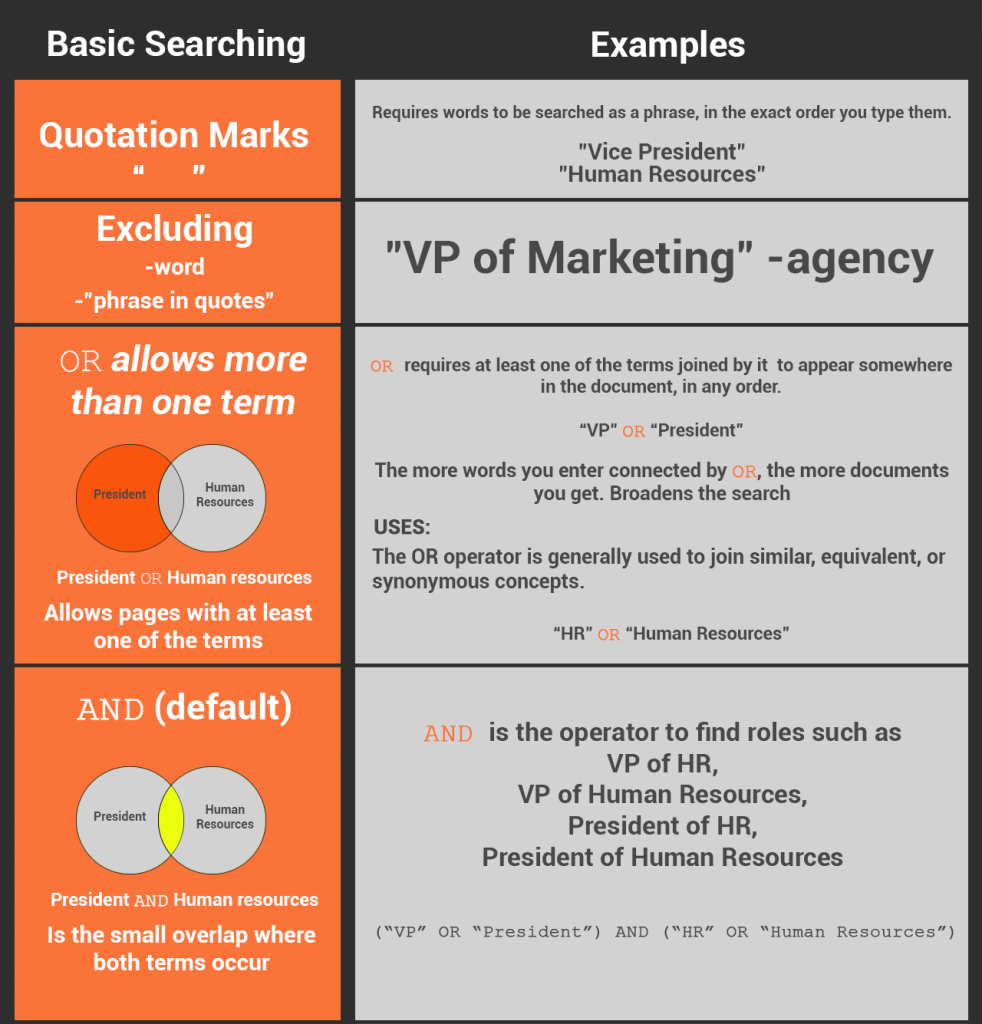
Refine your Boolean search strings further Narrow down your search by using the country name, postal code, diversity preference, company, or natural language in your Boolean search strings, for better results. Site: (platform URL) (“The job title you’re recruiting for” OR “enter another variant”) OR “skill 1” OR “other details”

#Boolean search in recruitment examples software
For example, a recruiter who is looking for a software engineer with experience in Java but not in Python can use the following search query: "software engineer AND Java NOT Python." This will return the candidates who have experience in Java but exclude those who have experience in Python.īrackets are used to wrap multiple keywords in OR search. This is useful when searching for candidates who have experience in specific areas but want to exclude candidates who have experience in other areas. Using the NOT operator returns search results that do not contain the keyword that is excluded. The NOT operator is used to exclude certain keywords from a search query. For example, a recruiter who is looking for a marketing manager with experience in either social media or email marketing can use the following search query: "marketing manager OR social media OR email marketing." This will return the candidates who have experience in any of these fields, allowing the recruiter to cast a wider net for potential candidates.

This is useful when searching for candidates who have experience in different but related fields. Using the OR operator returns search results that contain any of the keywords included in the search query. The OR operator is used to connect two or more keywords in a search query. For example, a recruiter who is searching for a sales executive with experience in both retail and online sales can use the following search query: "sales executive AND retail AND online sales." This will return only the candidates who have experience in both retail and online sales, making the hiring process more efficient. This is useful when searching for candidates who possess specific skills or experience. Using the AND operator returns search results that contain all of the keywords included in the search query. The AND operator is used to connect two or more keywords in a search query.
#Boolean search in recruitment examples how to
In this article, we will discuss how recruiters can use Boolean searches in their hiring process, along with examples of how to use the operators AND, OR, and NOT. Boolean searches allow recruiters to use specific keywords and operators to create more precise search queries, which will enable them to quickly identify the most suitable candidates for a job opening.

Boolean searches are a powerful tool for recruiters that help to refine and optimize their candidate searches, ultimately leading to more efficient and effective hiring.


 0 kommentar(er)
0 kommentar(er)
